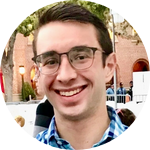About This Project
Tracking is common in school districts across the United States. Justifications include the ability to identify promising students and provide them with accelerated education. Opponents argue that tracking perpetuates inequality and segregation, and may not improve academic outcomes. We will study the effects of elementary school tracking on academic achievement in NYC, with a particular focus on advanced math coursework and STEM school enrollment.
Ask the Scientists
Join The DiscussionWhat is the context of this research?
We study NYC, where public schools are heavily tracked across all grades. Especially contentious are gifted and talented (G&T) programs, which group students by ability into separate classrooms and schools beginning in kindergarten. In 2022, outgoing mayor Bill de Blasio eliminated the G&T program, only for successor Eric Adams to reinstate and expand it. Both actions were highly controversial. At the high school level, tracking consists of eight specialized high schools. Six specialize in STEM, and offer advanced math courses such as multivariable calculus. Prior work focuses on short-run impacts such as attendance and test scores in NYC and elsewhere; these find small effects. We study long-run impacts, as program effects may not appear immediately.
What is the significance of this project?
Our findings are relevant for policies aiming to promote human capital development and school integration. For the former, we provide evidence on how tracking affects academic outcomes. This is likely to be relevant for any policies that involve ability-grouping. For the latter, we will demonstrate how tracking impacts school segregation. In particular, our findings will be relevant for diversity efforts throughout K-12. If elementary G&T programs have impacts on the composition of secondary secondary schools, then G&T policies may represent a useful policy lever for achieving equity objectives.
What are the goals of the project?
We will estimate the causal effects of G&T enrollment. The first source of variation arises from entrance exam cutoffs, with a regression discontinuity design. The second arises from lottery-based assignment when programs are oversubscribed. NYCDOE uses the deferred acceptance algorithm to assign students to programs, yielding instrumental variables for enrollment. We will estimate effects on a range of outcomes like math achievement and STEM secondary school enrollment. Second, we ask how G&T programs could be reformed to better identify and develop the ability of promising students. We will build a model of school choice that allows us to see how changes in program rules impact learning and school segregation.
Budget
Research assistance funds will be used to help organize and understand the administrative data files used in our project. Travel funds will be used to meet with school district officials and ensure that our empirical analyses are consistent with qualitative observations. Travel funds will also be used to present our research at conferences to share our findings with those developing relevant policies.
Endorsed by
 Project Timeline
Project Timeline
We anticipate the project taking approximately three years, from the beginning of data analysis to the project's publication in an academic journal.
Jul 05, 2023
Project Launched
Dec 31, 2023
Finish cleaning data and begin initial analyses on causal effects
Dec 31, 2024
Estimate a model of school choice to evaluate counterfactual policies.
Dec 31, 2025
Finalize and present the results, and debrief stakeholders about findings.
Meet the Team
Team Bio
This project is joint work with Jimmy Chin, a PhD student in Economics at UC Berkeley.
Geoffrey Kocks
Geoffrey is a PhD student in Economics at MIT, interested in topics in labor economics, the economics of education, and health economics.
Lab Notes
Nothing posted yet.
Additional Information
Our study relies on rich administrative data provided by the NYC Department of Education (NYCDOE). We secured these data through an approved research partnership with the NYCDOE.
Project Backers
- 1Backers
- 105%Funded
- $3,500Total Donations
- $3,500.00Average Donation

